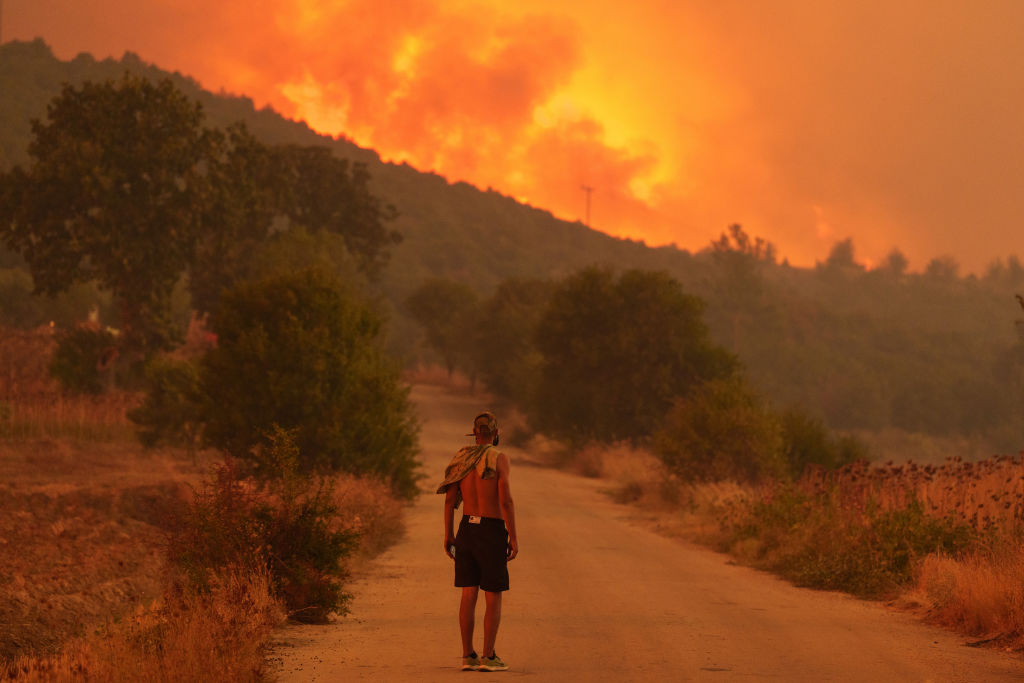
A landmark United Nations assessment of global progress on cutting emissions shows countries are largely failing to meet their commitments, putting the planet on course for catastrophic global warming.
The UN’s climate change secretariat calculated the progress every country in the world has made on their pledges to reduce emissions and assessed how much it’s helping to tackle global warming. The answer is not enough.
The report released Friday says governments must rapidly find a way to cut billions of tons of carbon dioxide if they want to stop the world from exceeding 1.5 degrees Celsius of warming by the end of the decade.
Time is running out. The world is on track to breach 1.5C of warming in the near term without immediate action, according to scientists on the UN sponsored Intergovernmental Panel on Climate Change. This summer was already the warmest on record globally by a large margin as extreme heat waves gripped North America, Europe and Asia, according to Europe’s Earth observation agency Copernicus.
Read more: The Window to Adapt to Climate Change Is ‘Rapidly Closing,’ Warns the IPCC
Further warming would lead to more extreme weather events, wildfires and storms, which in turn can destroy communities, forcing people to flee their homes or countries. It can also ruin crops, creating further food shortages, while warming the seas and threatening species.
“There is a rapidly closing window of opportunity to secure a liveable and sustainable future for all,” the report said.
Today’s UN report has been written to underpin upcoming global climate talks, known as COP28, which are due to take place from the end of November in Dubai. In that meeting, countries will check in for the first time on the progress that has been made since the 2015 UN climate talks in Paris, where countries agreed to work toward capping global temperature increases since pre-industrial times to 2 degrees Celsius (3.6 degrees Fahrenheit) and acknowledged the need to strive for 1.5 degrees by the end of the century.
While emissions have already peaked in developed and some developing countries, they must stop rising globally before 2025 to achieve a warming limit of 1.5C, the report said. It also called for a scaling up all renewable energy, phasing out all unabated fossil fuels and an end to deforestation and forest degradation, alongside an increase in tree planting. Transport and buildings also need to decarbonize.
“This report is a wake-up call to the injustice of the climate crisis and a pivotal opportunity to correct course,” said Ani Dasgupta, president and chief executive of the World Resources Institute. “We already know the world is failing to meet its climate goals, but leaders now have a concrete blueprint underpinned by a mountain of evidence for how to get the job done.”
The UN’s assessment is the first-of-its kind released and comes as leaders from the 20 largest economies prepare to gather in New Delhi for their annual G-20 summit. Indian Prime Minister Narendra Modi, the summit host, is pushing for the group to agree a target to triple renewable energy capacity by 2030. However, the draft text also seeks to allow for more burning of fossil fuels, albeit with technologies that can capture emissions.
More Must-Reads from TIME
- How Donald Trump Won
- The Best Inventions of 2024
- Why Sleep Is the Key to Living Longer
- Robert Zemeckis Just Wants to Move You
- How to Break 8 Toxic Communication Habits
- Nicola Coughlan Bet on Herself—And Won
- Why Vinegar Is So Good for You
- Meet TIME's Newest Class of Next Generation Leaders
Contact us at letters@time.com